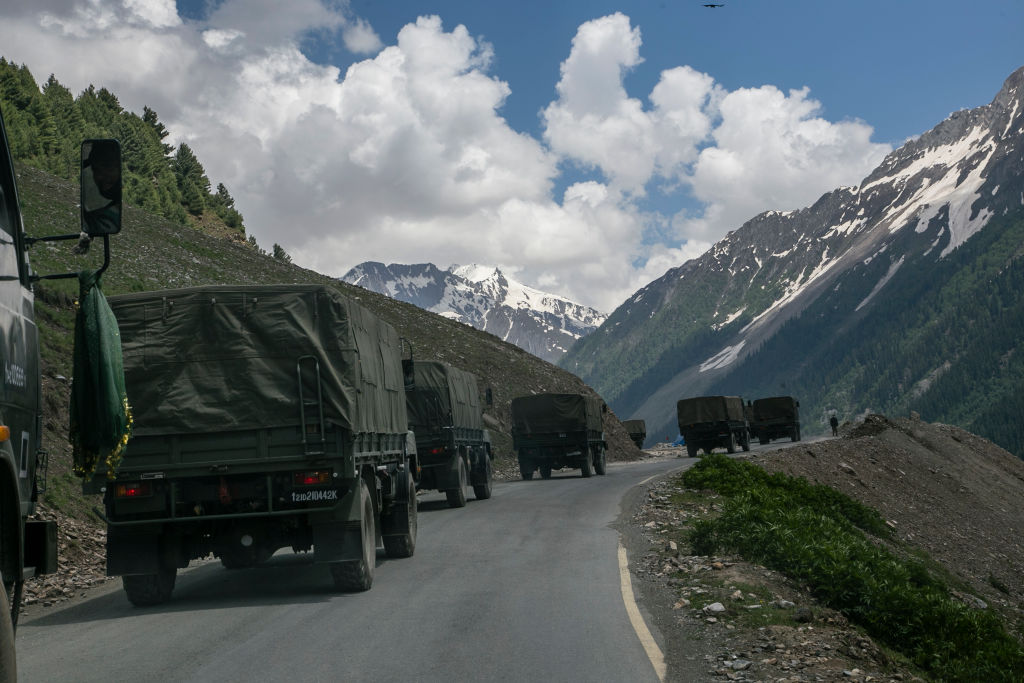- Tuesday, April 23, 2024

By: Shubham Ghosh
THE Narendra Modi government on Thursday (11) told the Supreme Court that if the Indian Army cannot move its missile launchers and heavy machinery upto the border with northern neighbour China, how will it fight in case a war breaks out.
Addressing concerns over landslides in the Himalayan region due to construction of the wider Chardham highway project, the government said all necessary steps have been taken to mitigate disasters and added that landslides have occurred in various parts of the country and not specifically because of road construction.
The Chardhan project worth Rs 12,000 crore aims at providing all-weather connectivity to four holy towns of Yamunotri, Gangotri, Kedarnath and Badrinath in the northern Indian state of Uttarakhand, which often faces devastating natural disasters.

A bench of the Supreme Court comprising Justices DY Chandrachud, Surya Kant and Vikram Nath, which reserved its verdict on a plea of the Indian defence ministry to modify its earlier order and plea of a non-governmental organisation (NGO) ‘Citizens for Green Doon’ against the widening of the road, asked them to give submissions in written on the steps taken and will be taken to mitigate landslides in the region, Press Trust of India reported.
Appearing for the central government, attorney general KK Venugopal said, “These are inhospitable terrains where Army needs to move heavy vehicles, machineries, weapons, missiles, tanks, troops and food supplies. Our Brahmos missile is 42 feet long and needs large vehicles to carry its launchers. If the Army cannot move its missile launchers and machineries upto the northern China border, then how will it fight a war, if it breaks out.”
“God forbid if the war breaks out then how will the Army deal with it if it does not have its weapons. We have to be careful and on guard. We are to remain prepared. Our defence minister attended Indian Road Congress and had said that the Army needs disaster-resilient roads,” he added.
Venugopal also said that appropriate studies have been undertaken, including geological surveys, morphology and human activities in the vulnerable areas and steps such as stabilisation of slopes, afforestation and scientific multi disposal have been undertaken.
“Landslides can happen anywhere in the country even where there is no road activity but mitigation steps which are necessary are undertaken. Our roads need to be disaster resilient. There are specialised protection measures undertaken in the vulnerable areas, where frequent landslides occur and heavy snowfall blocks the road,” the attorney general said.
“The build-up on the other side of the border can only be accessed through passes in these mountains. The High Powered Committee (HPC) supervising the Chardham project in its report did not address these concerns of the Army. The HPC report is far cry from the needs of the Army,” he said.
“Can the Army say that it will not take these mountain roads as landslides happen and hence it cannot protect the borders? There are no alternatives. We have to live with landslides. We have to deal with it through mitigating steps. Landslides have happened in Karnataka, North Eastern States, West Bengal, and other parts of the country. It has not spared anybody. It has to be accepted that Jammu and Kashmir, Himachal Pradesh, and Uttarakhand witness more landslides”, he said.
Senior advocate Collin Gonsalves, who appeared for the NGO, said the road-widening project has to be stopped. According to him, it will endanger the lives of soldiers and people as the Himalayas don’t need any such thing to happen.
“These activities cannot be allowed by the Himalayas. These are god-given restrictions. If you forcefully try to do it, the mountains will reclaim it. There were some mitigation steps taken but they were all washed out”, he said.
On Wednesday (10), the top court asked the Centre and an NGO to suggest additional safeguards which it could impose on the implementing agencies of the ambitious Chardham project if it allows the multi-thousand crore project to go on considering the huge ramification of the country’s defence needs.
The court was hearing the government’s plea seeking modification of the September 8, 2020 order, which had asked the Indian ministry of road transport and highways to follow the 2018 circular stipulating carriageway width of 5.5 metre on the ambitious Chardham highway project, PTI reported.
![]()